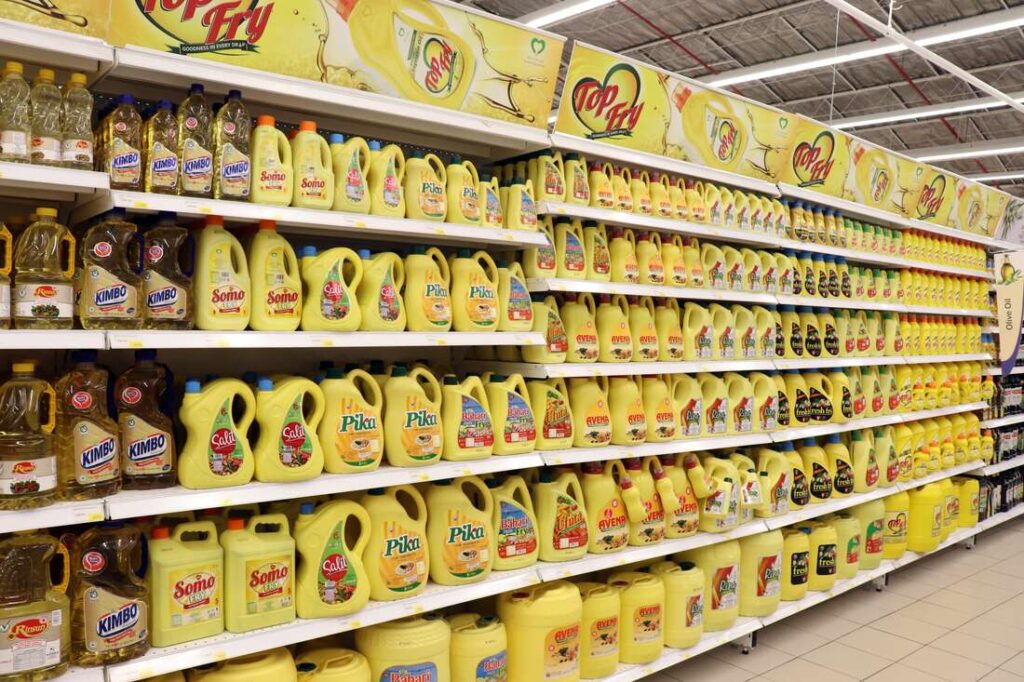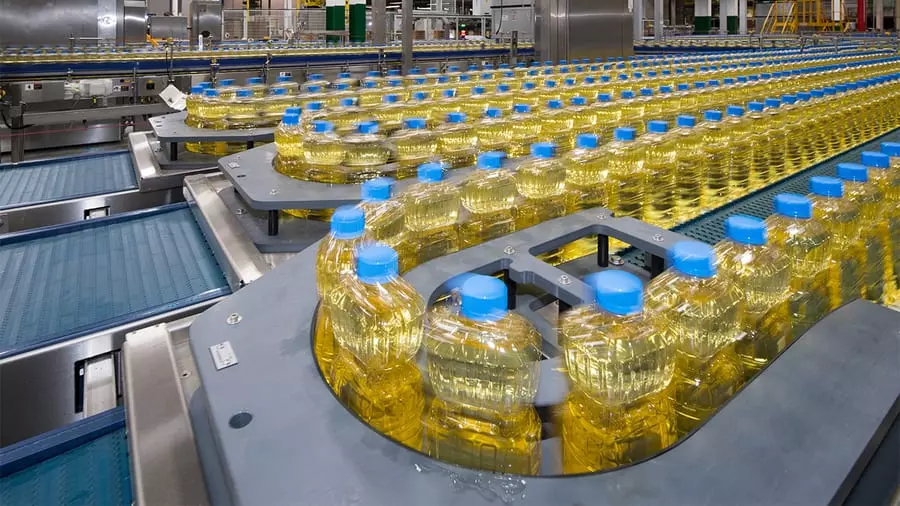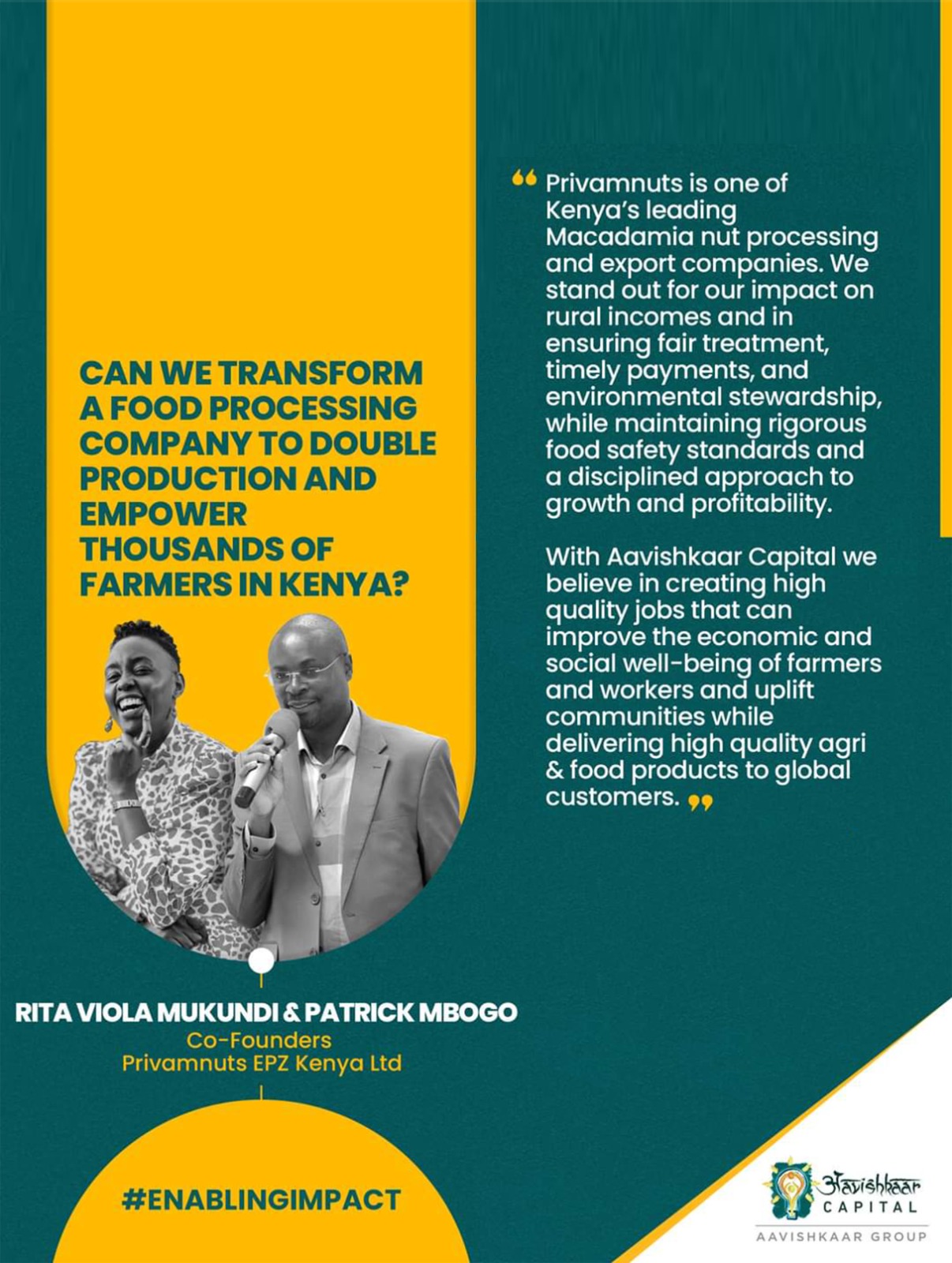
The edible oil manufacturing sub-sector players under the umbrella of the Kenya Association of Manufacturers (KAM),would like to state the following regarding the ongoing debate on the state of the Kenyan edible oils industry.
1) Kenya has a competitively vibrant and world class edible oils manufacturing sector.This is a large and high value-adding industrial base of over 13 local companies, 3 of which were established in the last 5 years.Over KES 100 billion in capital has been invested in the sector that has a combined installed processing capacity of 7,160 Metric Tonnes (MT) per day or over 2 million MT per year.
The current market demand and consumption is about 800,000 MT per year, leaving an idle capacity of more than 1 million MT, as available. More than 25% of this capacity has been invested over the last 5 years alone, underscoring the sector’s commitment to a robust manufacturing agenda and local economic growth.
 2) These companies are legitimate businesses that manufacture and process Crude Palm Oil (CPO), Crude Sunflower seed Oil, Crude Soybean Oil and Crude Corn Oil into 100% highly value-added products like edible cooking oil, vegetable fat and margarine with the by-products used in making soap.
2) These companies are legitimate businesses that manufacture and process Crude Palm Oil (CPO), Crude Sunflower seed Oil, Crude Soybean Oil and Crude Corn Oil into 100% highly value-added products like edible cooking oil, vegetable fat and margarine with the by-products used in making soap.
These products are widely available in the local and export markets. The industry employs over 10,000 people directly and provides another 100,000 jobs and livelihoods in farming (Sunflower, Soya and Corn), transport, packaging and distribution as well as other related ancillary product and services sectors.
3) Edible oil products are vital ingredients in the bread, baked goods and confectionery industries comprising between 5% to 20% of inputs. Another 20% and 40% goes into the snacking industries such as potato crisps and instant noodles. Notably 99% of total packaging for edible oil products are sourced locally including jerry cans, tubs, cartons, labels and flexible packaging. All of these supportive industries
employ over 32,000 people, contributing to the development of this important sector.
4) In 2022 the industry paid to the Kenya Revenue Authority (KRA) and the Agriculture and Food Authority (AFA) in excess of KES 40 billion in form of PAYE and income taxes. Others include the Railway Development Levy (RDL),Import Declaration Fees (IDF),National Oil Crop Development (NOCD) Levy and Value Added Tax (VAT). In addition to labour, processing, packaging and distribution costs, direct
taxes account for approximately 22% of the cost price of cooking oil.
5) Local selling prices of edible oil products follow global price trends which are always in flux owing to international market forces. As (CPO) prices come down from their excessive high levels in the past two years, the prices to end consumers will continue falling in tandem. Hitherto driven by intense but positive competition, it is our position that local market prices always move based on international market forces and prevailing foreign exchange rates and not any other factors as evidenced in price trends over the last 3 years.
6) The sub-sector acknowledges government interventions that have contributed to the positive growth of industry such as the stay application in June 2018 of the East African Community Common External Tariffs (EAC CET).Following the restriction of undervalued goods from cheap subsidized imports and which had grown to about 30% of the market, the local industry has shown significant growth with
volumes growing by 63% in the second half of 2018 compared to the first half.
This trend has remained consistent hitting a peak in 2021 of over 900,000 MT despite the supply chain shocks brought about by the COVID-19 pandemic and the Russia -Ukraine war. Importantly, the stay order was subsequently extended with the other EAC countries following suit in recognition of the impact the policy has on
promoting local industry.
Given the important role the edible oils manufacturing sector plays in the economy our objective is to find a lasting solution in lowering the cost of cooking oil. We need to ensure the sustainable growth of local manufacturing to protect jobs and support economic growth through value addition. In the spirit of Buy Kenya, Build Kenya, we offer the following recommendation to the government for consideration and engagement towards promoting local and regional competitiveness.
7) The edible oil sub-sector is in full support of the backward integration and growing of oil palm in Kenya and requests the government to allocate suitable land for palm growing to the industry players.With this incentive, the private sector will be able to harness investments through public private partnerships with priority given to infrastructure and job creation.Through the Agriculture for Industry (A4I) initiative of KAM the industry shall work with both the national and county governments in identifying suitable zones where sunflower and palm fruit will be grown.
Expectedly it will take 7 to 8 years before the first fruit crop harvests, numerous multiplier benefits would accrue throughout the economy during this nascent period.The 2% NOCD levy already being contributed by the sector should be used to develop the palm, soya and sunflower farming as was envisioned.
8) We thank the government for continuing the stay of application of the tariff on ready-made refined imported oils from outside EAC and COMESA at 25% or USD 500/MT whichever is higher in the EAC CET.The ideal would have been to retain this at 35 % as this is under the category of finished goods.
However they reiterate their commitment to supporting government efforts in job creation and economic stability while helping to address the needs of the vulnerable and food insecure populations in the country.This, however, has to start with the government creating a level playing field in the interest of all stakeholders and the general public.
”Through partnership and engagement, we believe that Kenya now has a golden opportunity to promote industrialization by supporting local manufacturing at a time when more impetus is needed in shoring up local production and value addition.”The statement added













